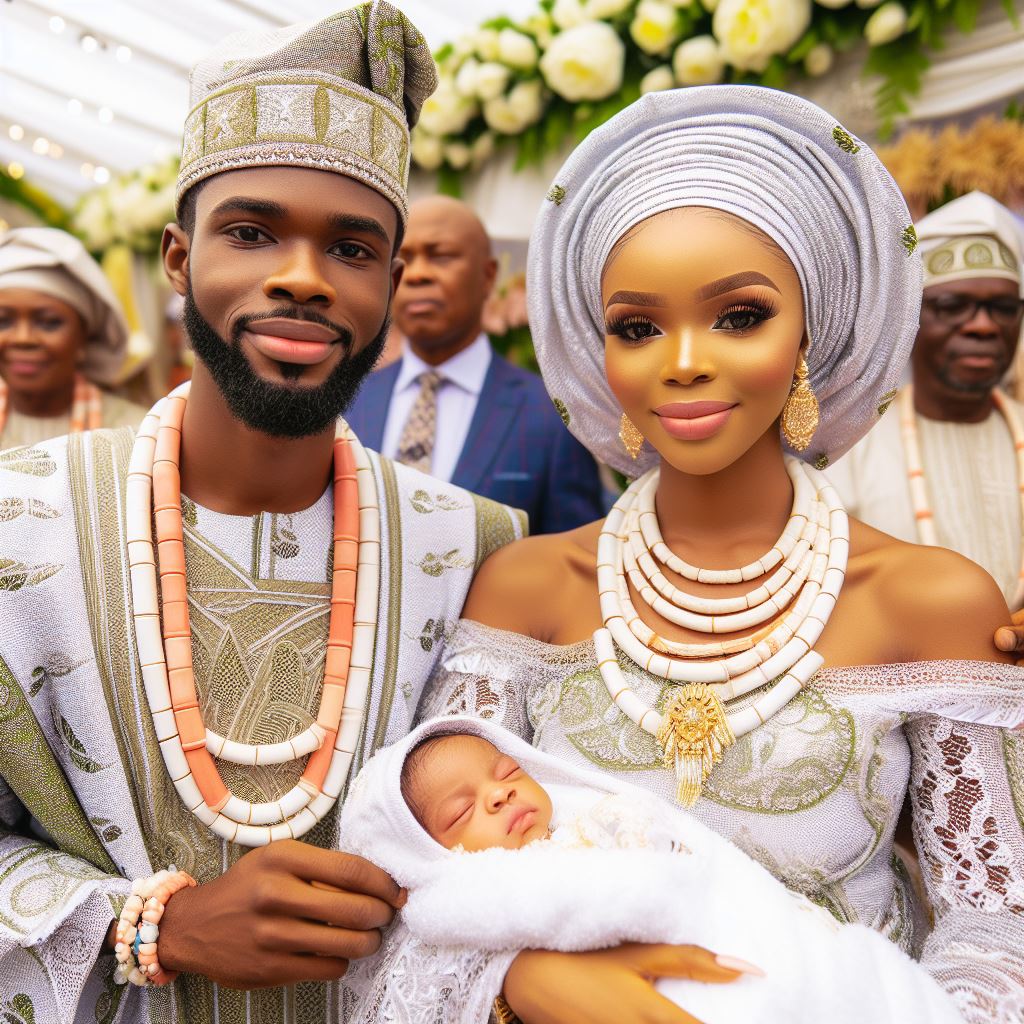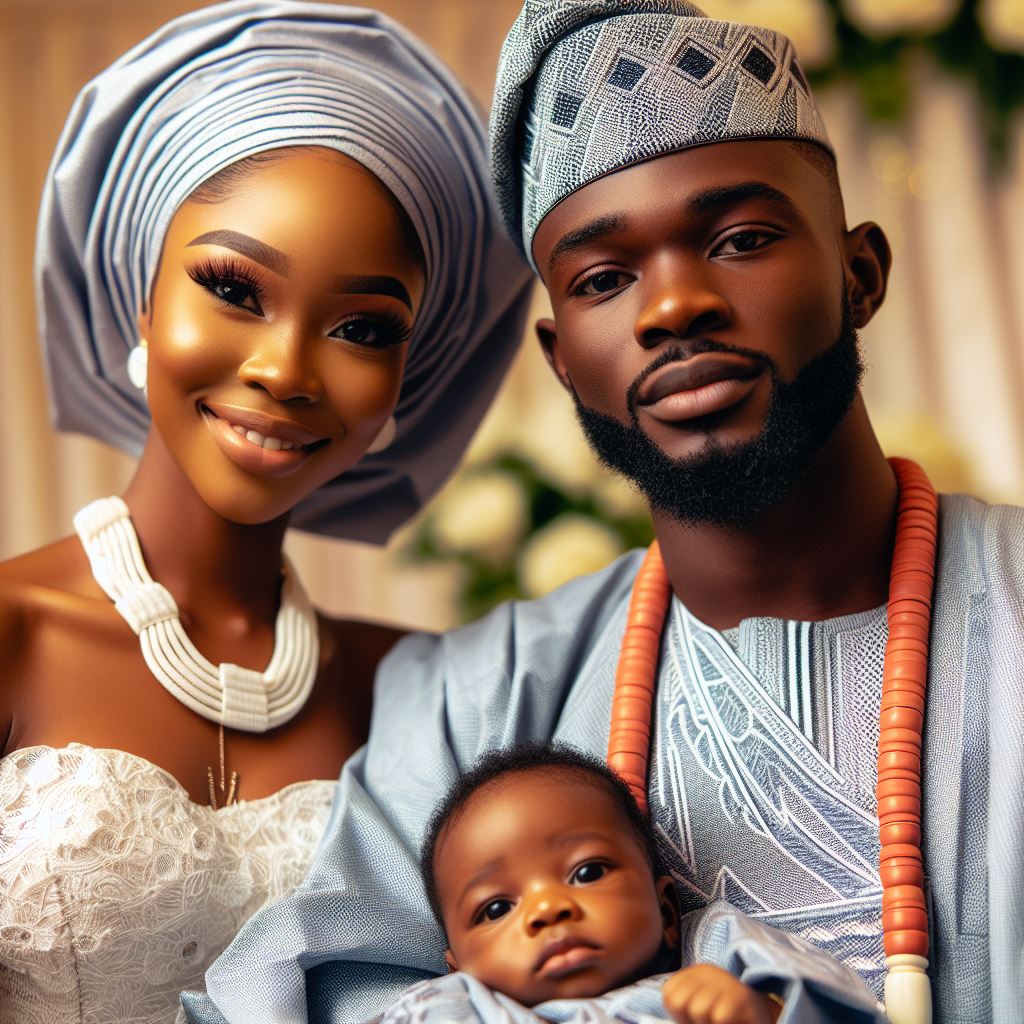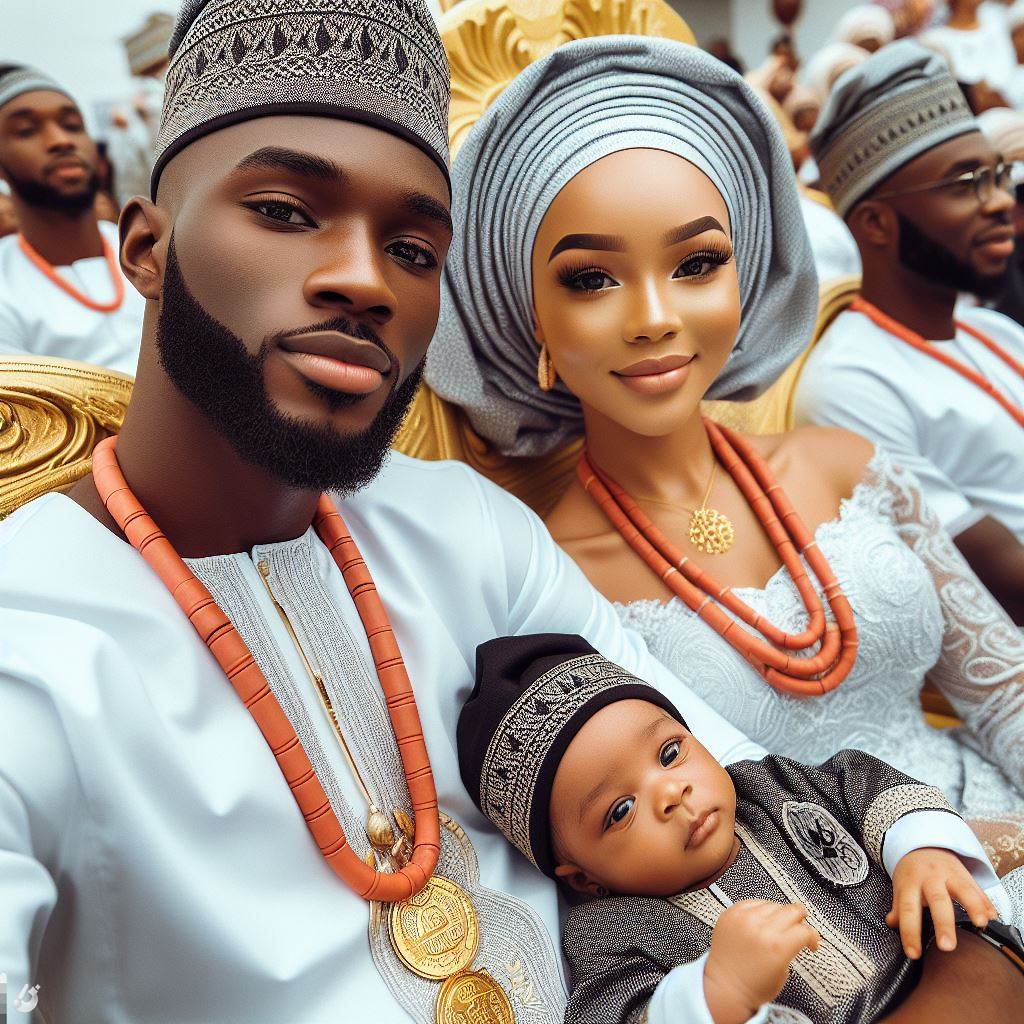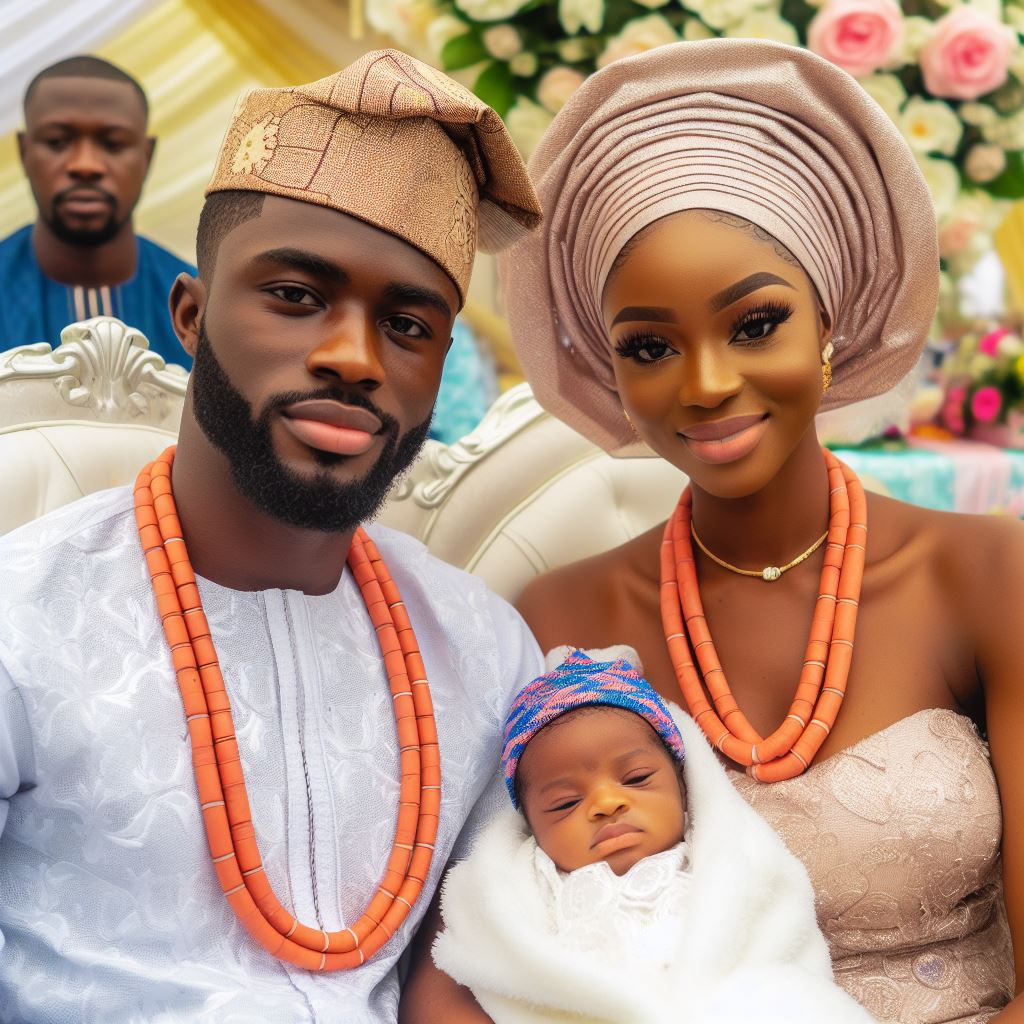Introduction
Choosing a name for a Muslim baby holds profound significance, reflecting cultural heritage and religious identity.
The name bestows identity and shapes the child’s destiny, embodying aspirations and virtues.
In Nigeria, a country with a rich tapestry of cultures and ethnicities, the Muslim population boasts vibrant naming customs.
With over 50 ethnic groups, each with distinct naming traditions, Nigeria’s diversity is mirrored in its naming practices.
For Nigerian Muslims, the process of selecting a name involves a meticulous consideration of linguistic, cultural, and religious elements.
Names are often chosen to honor a revered family member, symbolize values, or demonstrate faith.
The importance of a name extends beyond a mere identifier; it’s a source of pride, heritage, and legacy.
It holds the power to shape an individual’s character and influence their journey through life.
Nigeria’s Muslim communities draw inspiration from various sources when naming their children.
Arabic names, derived from the Quran or Hadith, are prevalent due to their spiritual significance and connection to Islam.
Additionally, Nigerian Muslim names often encapsulate indigenous languages and cultural practices, reflecting the country’s diverse heritage.
Yoruba, Hausa, Igbo, and other local languages contribute to the rich pool of names.
Each name carries a unique meaning, encapsulating virtues like strength, wisdom, faith, or blessings.
Moreover, names might vary across regions, adding a distinct regional flavor to the diverse naming practices.
In this guide, we delve into the intricate world of Nigerian Muslim names, exploring their meanings, cultural connotations, and significance.
Parenting Made Just for You
Get personalized Parenting Solutions tailored to your child’s needs. Transform your parenting journey with expert guidance in 1-3 days.
Get StartedUnderstanding this diverse tapestry of names enables parents to choose thoughtfully and honorably for their newborns.
Stay tuned to unravel the beauty and depth of Muslim names in Nigeria, unveiling the stories and traditions behind each cherished name.
Traditional Muslim Names
Overview of traditional Arabic names and their meaning
Traditional Muslim names in Nigeria are deeply rooted in Arabic culture and have significant meanings behind them.
These names are often chosen to invoke blessings and reflect the values and beliefs of the Muslim community.
Arabic names generally consist of three parts – the ism (given name), the kunya (a nickname derived from the name of one’s eldest child), and the nasab (patronymic).
Each part carries significance and adds to the overall meaning of the name.
For example, the name Mohammed means “praised” or “praiseworthy” in Arabic.
It is derived from the root word “hamida,” which signifies commendation and gratitude.
The name Mohammed is widely used in Nigeria, and it is considered a great honor to be named after the Prophet Mohammed.
Popular traditional names used in Nigeria
Nigeria has a rich Islamic heritage, and as a result, a multitude of traditional Muslim names are popularly used. Some common examples include:
- Aisha – A name that means “alive” or “she who lives” and is associated with Prophet Mohammed’s wife.
- Ibrahim – Derived from the Arabic word for “father of many” or “to be fatherly,” it reflects the importance of family and parenthood.
- Fatima – This name means “one who abstains,” and it holds a special significance as it was the name of Prophet Mohammed’s daughter.
- Yusuf – A name that means “God increases” or “God shall add,” it is believed to bring blessings and abundance.
- Maryam – Derived from the biblical name “Mary,” it is associated with the mother of Prophet Jesus and symbolizes purity and devotion.
- Abdullahi – A name that means “servant of Allah,” highlighting the importance of devotion and servitude in Islam.
Significance of Prophet Muhammad’s name in Muslim culture
In Muslim culture, the name of Prophet Mohammed holds immense reverence and is frequently chosen for boys as a gesture of respect and admiration.
In Nigeria, it is not uncommon to find boys named Mohammed or its variations, such as Ahmad or Mahmoud.
Prophet Mohammed is considered the last and greatest prophet in Islam, and his teachings, known as Hadiths, guide Muslims worldwide.
Naming a child after him is believed to bring blessings and is seen as a way to seek the Prophet’s intercession on behalf of the child.
Unveil the Perfect Name that Tells Your Family's Story
Let us help you find a name that embodies your family's values, traditions, and dreams. Our personalized consultation weaves cultural insights to create a name that's uniquely yours.
Get StartedMuslim parents in Nigeria often hope that by naming their child after the Prophet Mohammed, they will instill in them a strong sense of faith, piety, and moral values.
In essence, traditional Muslim names in Nigeria have a deep connection to Arabic culture and Islamic traditions.
These names carry significant meaning and are chosen with the intention of invoking blessings and reflecting the values of the Muslim community.
Examples such as Aisha, Ibrahim, and Fatima are widely used, while the name Mohammed holds a special place of honor in Muslim culture.
Read: Christian Baby Names with Nigerian Flair
Nigerian Muslim Names
Muslim names hold great significance in Nigerian culture, representing a fusion of Islamic traditions and Nigerian heritage.
These names reflect the deep connection between Islam and Nigerian identity, making them a popular choice for Nigerian parents.
In this section, we will explore the unique Nigerian Muslim names, delve into their Arabic elements, cultural significance, and provide examples of popular names and their meanings.
Unique Nigerian names with Islamic influence
Nigerian Muslim names are distinct, encompassing cultural traits and Islamic values.
They blend Arabic elements with Nigerian cultural significance, resulting in names that carry deep meaning.
These names often reflect the aspirations, beliefs, and values of the parents, while honoring their Nigerian roots.
Arabic elements and Nigerian cultural significance in these names
These Arabic elements play a significant role in Nigerian Muslim names, evident in their structure and pronunciation.
Arabic words are combined with Nigerian words to create beautiful and unique names that embody both traditions seamlessly.
The usage of the prefix ‘Abdul’, meaning “servant of,” is common in Nigerian Muslim names, followed by one of the 99 names of Allah in Arabic, such as Abdulrahman or Abdulaziz.
The connection between Islam and Nigerian heritage through names
Nigerian Muslim names also highlight the connection between the Islamic faith and Nigerian heritage.
They serve as a reminder of the rich history of Islam in Nigeria and the influence it has had on the country’s culture.
These names act as a representation of the strong bond between religion and tradition, emphasizing the importance of both in Nigerian society.
Popular Nigerian Muslim names and their meanings
Examples of popular Nigerian Muslim names include Aisha, Fatima, and Mohammed. Aisha means “alive” or “she who lives,” symbolizing strength and vitality.
Fatima, meaning “captivating,” represents beauty and charm.
Mohammed, derived from the Arabic name Ahmad, signifies “the praised one” and is one of the most common names in Nigeria, reflecting the popularity of the Islamic prophet.
Other popular Nigerian Muslim names include Zainab, meaning “beauty” or “fragrant flower,” and Ibrahim, derived from the biblical name Abraham, which means “father of many nations.”
These names not only have religious significance but also hold cultural importance within the Nigerian Muslim community.
Each Nigerian Muslim name carries a unique meaning, often reflecting the qualities or aspirations parents wish for their child.
They serve as a source of empowerment, instilling virtues such as strength, beauty, and wisdom.
These names are a way for Nigerian parents to express their love and hopes for their children, while also honoring their faith and heritage.
In fact, Nigerian Muslim names are a beautiful fusion of Islamic traditions and Nigerian culture.
They reflect the connection between religion and heritage, embodying values and aspirations.
These names hold deep meaning for Nigerian parents, ensuring that their children carry both their Nigerian identity and the values of Islam.
By choosing unique Nigerian Muslim names, parents celebrate their cultural heritage while embracing the teachings of their faith.
Read: Nigerian Royal Names for Your Prince or Princess
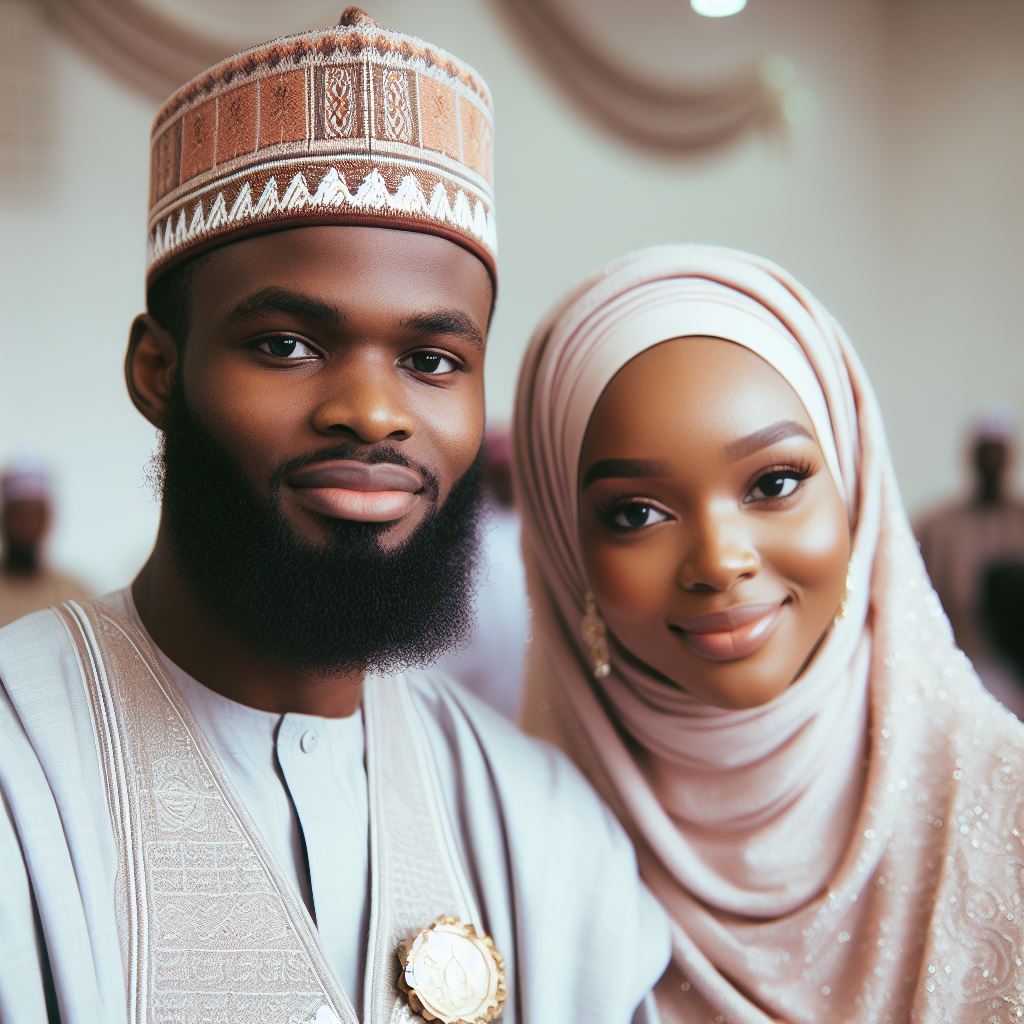
Factors to Consider When Choosing a Muslim Name for a Baby in Nigeria
Choosing a name for your baby is an important decision that requires careful consideration, especially when it comes to Muslim names in Nigeria.
In this section, we will discuss various factors to consider when selecting a Muslim name for your little one.
Islamic guidelines for selecting a name
Firstly, it is essential to understand the Islamic guidelines for selecting a name. Islam places great emphasis on names and their meanings.
It is recommended to choose names that hold positive connotations, reflect Islamic values, and have a good meaning in Arabic.
Names of prophets, companions of the Prophet Muhammad, or names that have been praised in the Quran are highly regarded.
Cultural and family considerations
However, while adhering to Islamic guidelines, it is also crucial to consider the cultural and family aspects when choosing a Muslim name.
Nigerian Muslims tend to balance Islamic traditions with their cultural heritage, resulting in a fusion of names.
Names that reflect Nigerian culture and traditions can create a strong sense of identity for your child.
Gender-neutral options for modern parents
In recent years, there has been a rise in the popularity of gender-neutral names among modern parents.
These names avoid gender stereotypes and can be used for both boys and girls.
This trend promotes equality and allows parents to choose a name that resonates with their personal beliefs and values.
Social, religious, and historical implications of certain names
Furthermore, it is important to be aware of the social, religious, and historical implications of certain names.
Some names may carry a historical significance or be associated with particular religious or ethnic groups.
It is essential to consider the potential impact of the chosen name on your child’s life and how it may shape their identity and interactions.
To provide some examples and inspiration, here are lists of Muslim names for babies in Nigeria:
For boys:
- Ahmed (Praised)
- Ibrahim (Father of Many)
- Yusuf (Joseph)
- Abdul (Servant of)
- Nasir (Supporter)
- Hamza (Lion)
- Adam (Man)
- Amin (Trustworthy)
For girls:
- Aisha (Living)
- Fatima (Weaning)
- Halima (Gentle)
- Mariam (Mary)
- Zainab (Fragrant Flower)
- Khadija (Premature Child)
- Safiyah (Pure)
- Sumayyah (Name of the First Martyr in Islam)
In short, when choosing a Muslim name for your baby in Nigeria, it is essential to consider a range of factors.
This includes adhering to Islamic guidelines, considering cultural and family considerations, exploring gender-neutral options, and being aware of the social, religious, and historical implications associated with certain names.
By making an informed decision, you can give your child a name that not only reflects their Islamic identity but also provides them with a strong sense of self and connection to their Nigerian roots.
Read: 2024 Trending Baby Names in Nigeria
Tips for Naming Muslim Babies in Nigeria
Choosing a name for your newborn in Nigeria holds profound cultural and religious significance.
When naming a Muslim baby, it’s essential to approach the process thoughtfully and respectfully.
Here are some tips to help navigate this meaningful journey.
1. Seek advice from scholars or respected community members
Firstly, seeking counsel from scholars or revered community members is invaluable.
Their wisdom and understanding of Islamic traditions can guide you towards selecting a name aligned with religious teachings and cultural norms.
Consulting them enriches the process, ensuring a name that carries spiritual depth and significance.
2. Research and understand name meanings and origins deeply
Next, delve into thorough research to comprehend the meanings and origins of potential names.
Understanding the etymology and historical context behind names allows for a deeper connection and appreciation of their significance.
Moreover, it prevents inadvertently choosing a name with unintended connotations.
3. Find a balance between uniqueness and meaningfulness
Striking a balance between uniqueness and meaningfulness is crucial.
While considering distinctive names is exciting, ensuring that the name holds profound significance is equally important.
Opt for a name that carries a beautiful meaning while also being distinct and memorable.
4. Consider the child’s future impact
Equally vital is contemplating the potential impact of the chosen name on the child’s future.
Names hold power; they shape perceptions and can influence one’s life journey.
Reflect on how the name might be perceived in different contexts and how it might impact the child’s experiences and opportunities.
Ultimately, the process of naming a Muslim baby in Nigeria is a deeply personal and culturally rich experience.
Embrace this journey with reverence, seeking guidance from respected sources, understanding the name’s significance, balancing uniqueness with meaning, and contemplating its potential impact on the child’s life.
In doing so, you honor tradition while ensuring a name that resonates with significance and love.
Read: Unisex Nigerian Names and Their Roots
Conclusion
Choosing a suitable Muslim name for babies in Nigeria is of utmost importance.
It not only connects the child to their Islamic faith but also celebrates their Nigerian cultural heritage.
A name represents the identity and heritage of a child, and it becomes a significant part of their life.
Embracing the rich Islamic and Nigerian naming traditions allows parents to instill values and principles right from the start.
By giving their child a meaningful name, parents can also ensure a strong connection to their roots and provide a sense of belonging.
Therefore, it is crucial for parents to carefully consider and select a Muslim name that reflects their beliefs, culture, and aspirations for their child.

